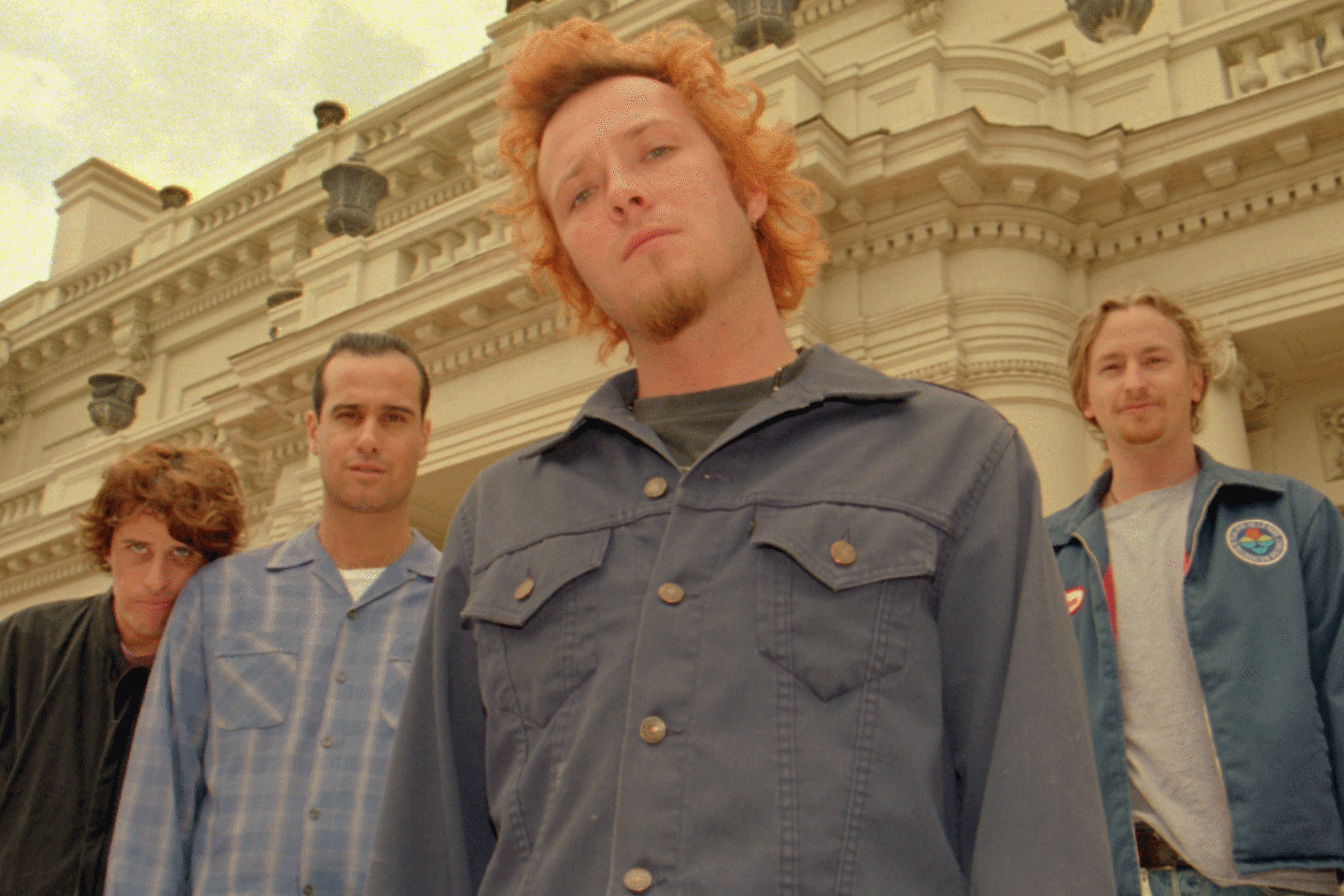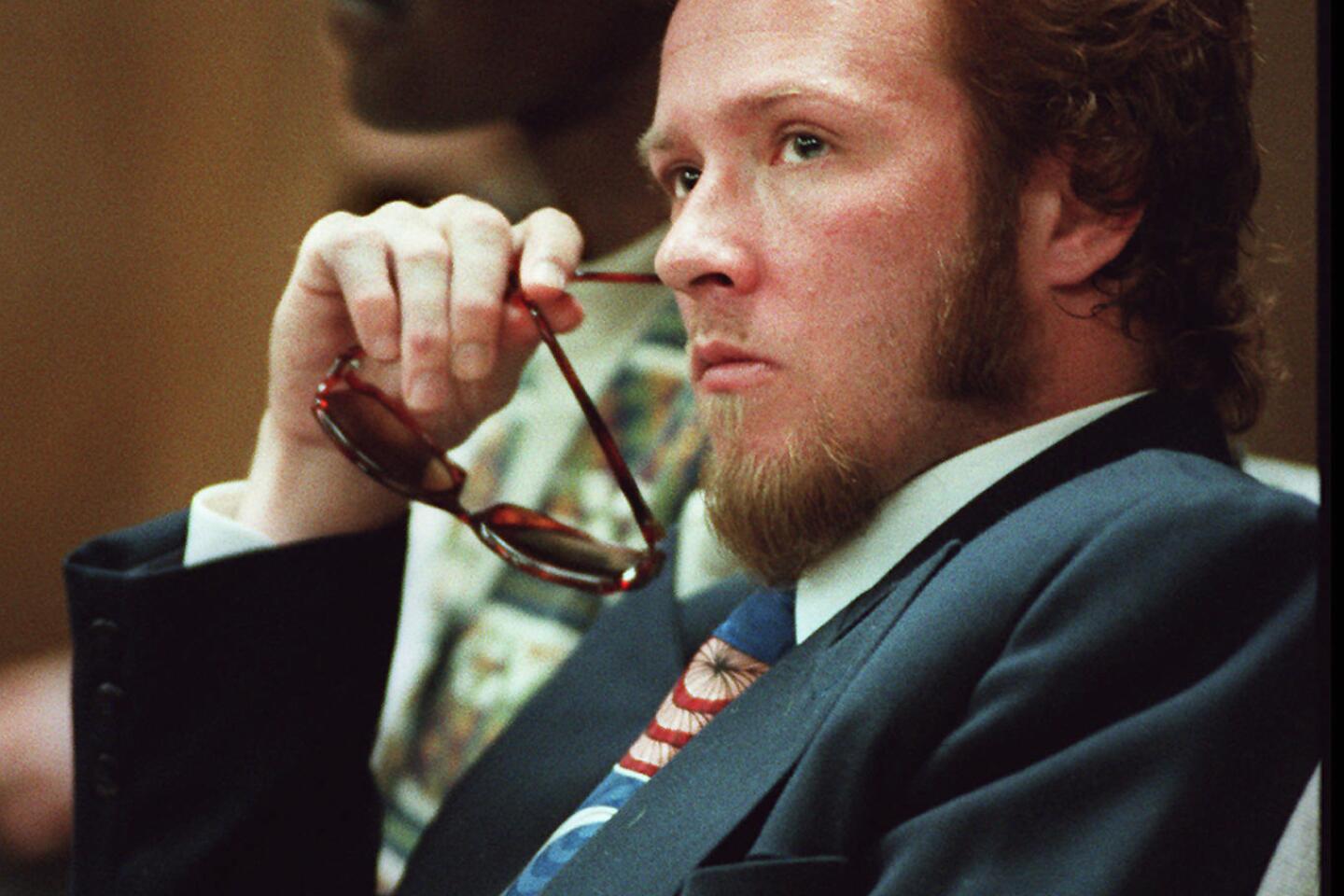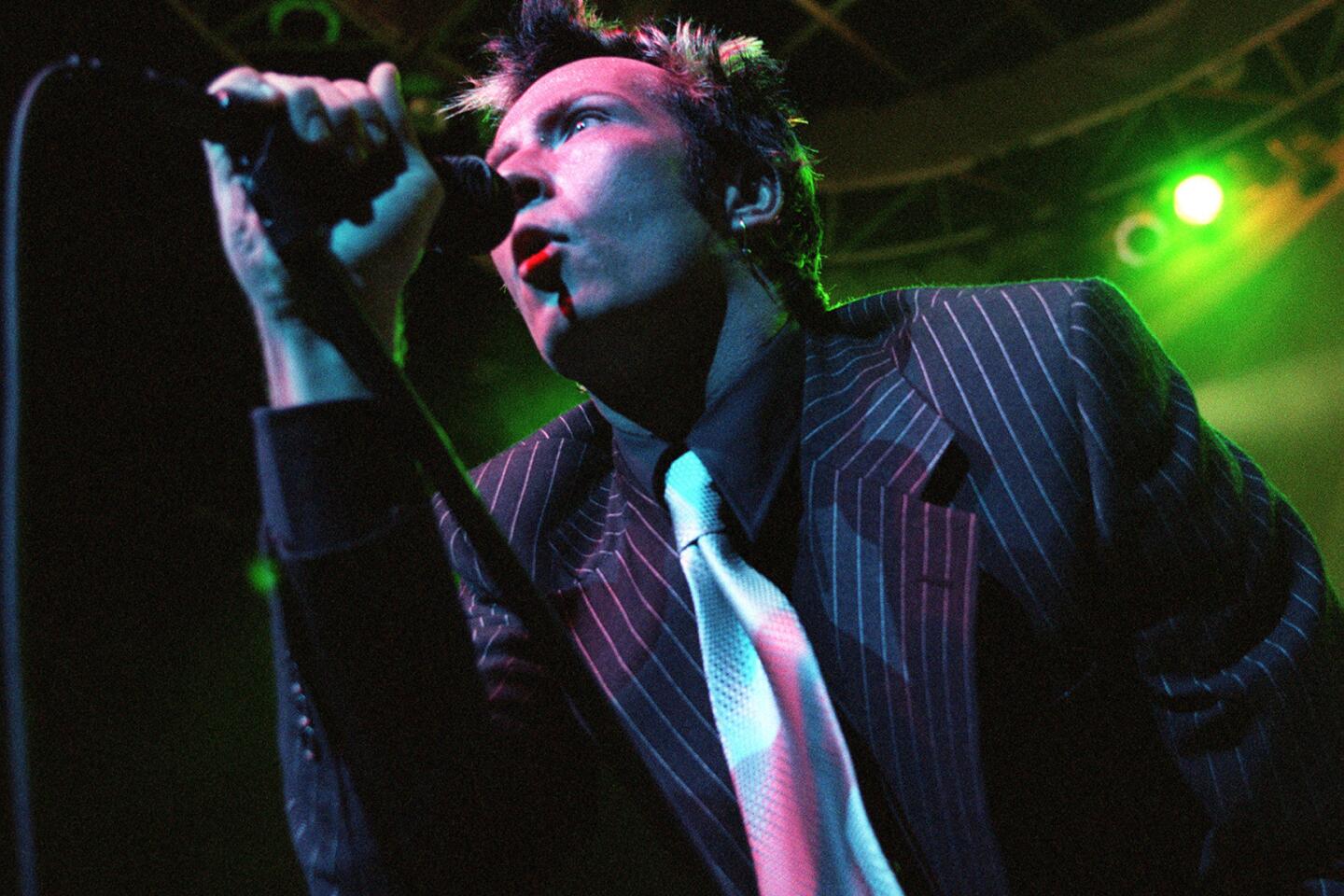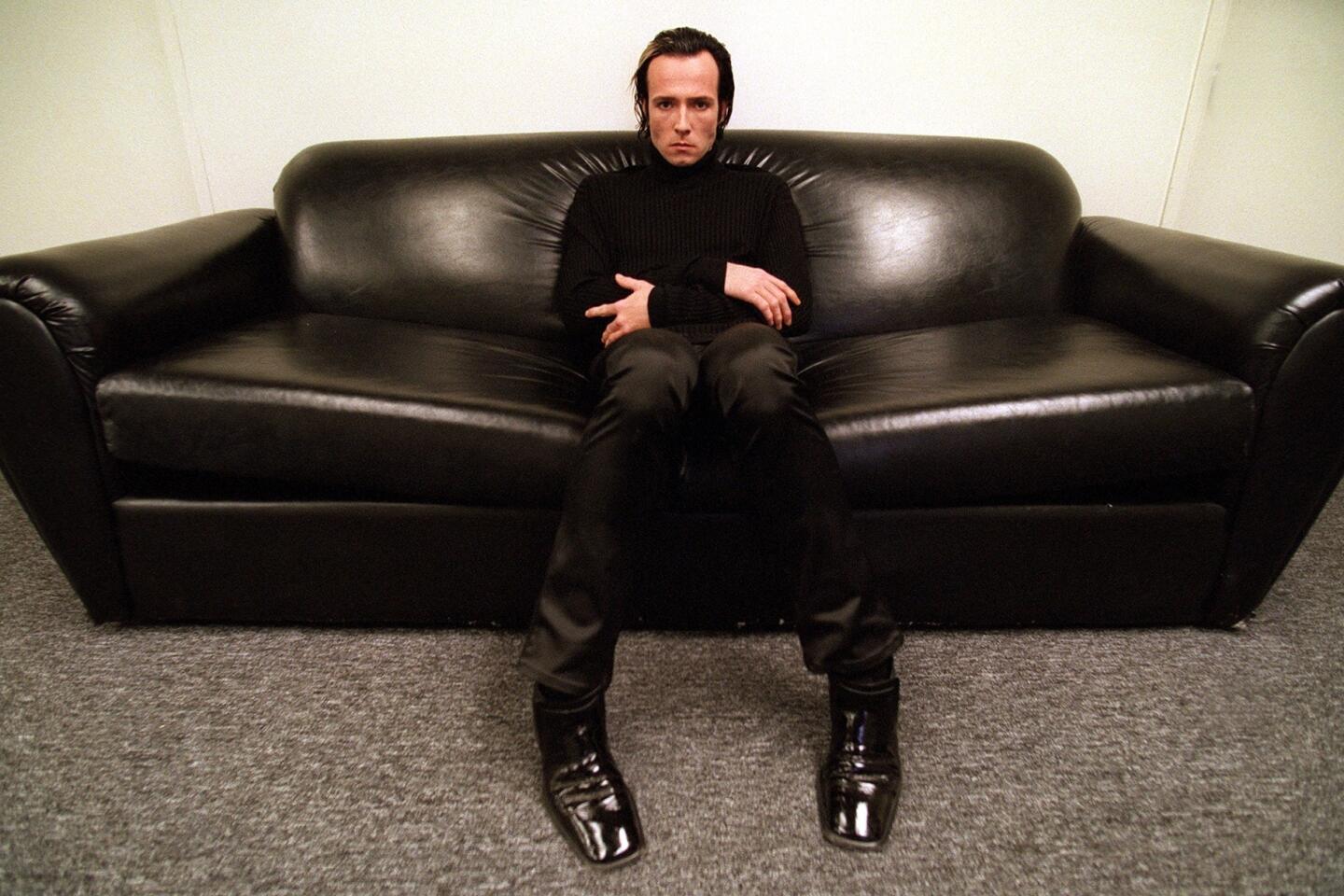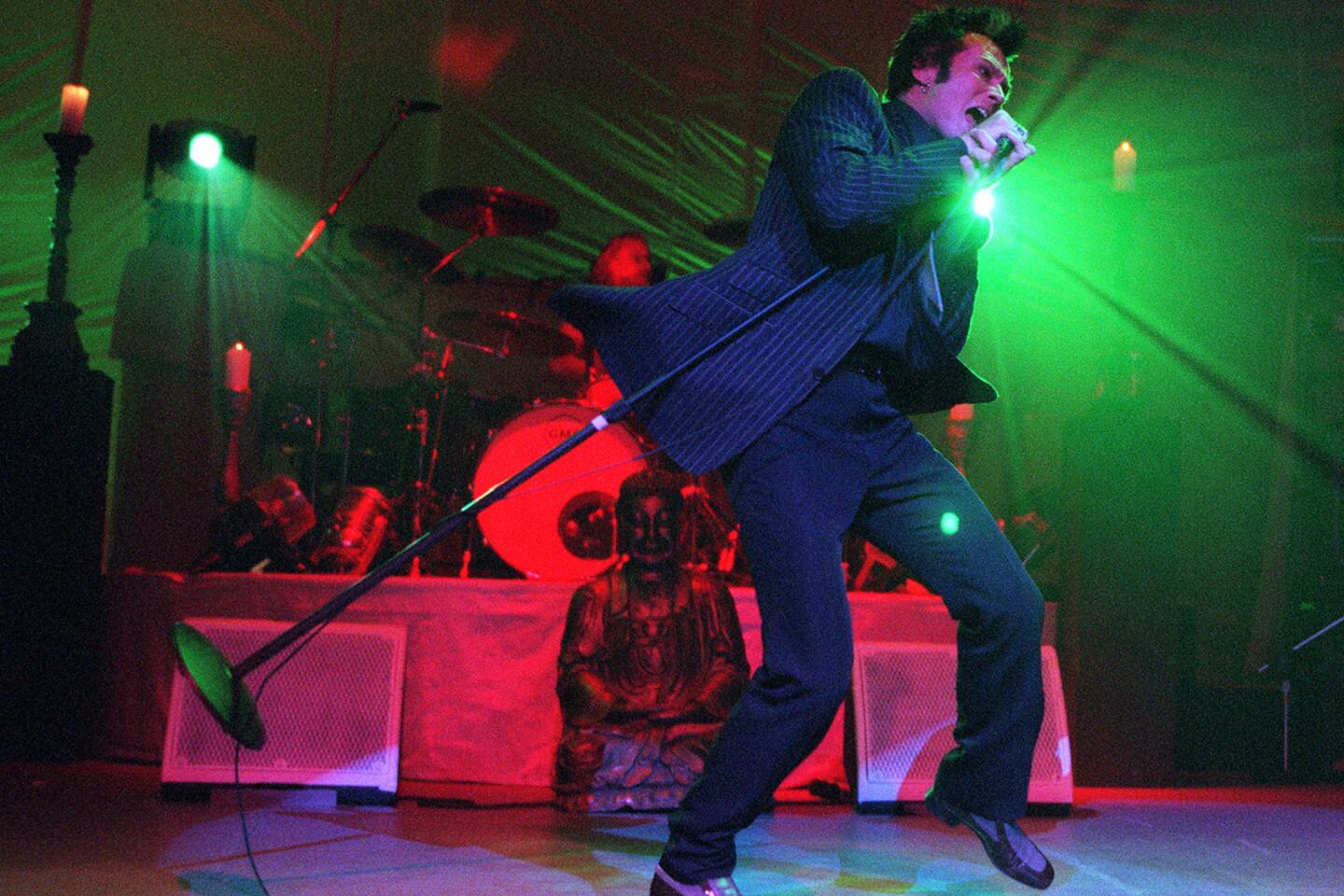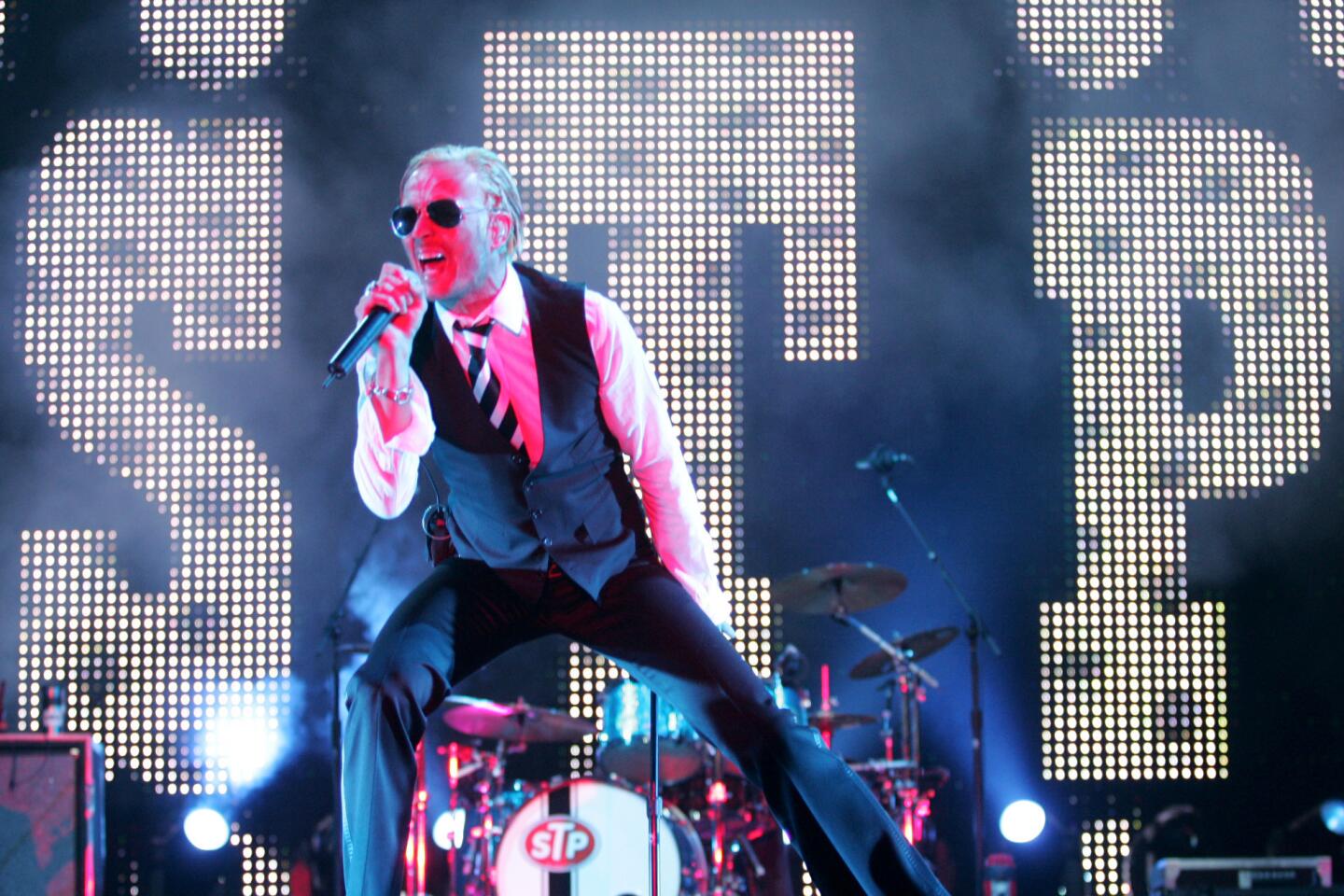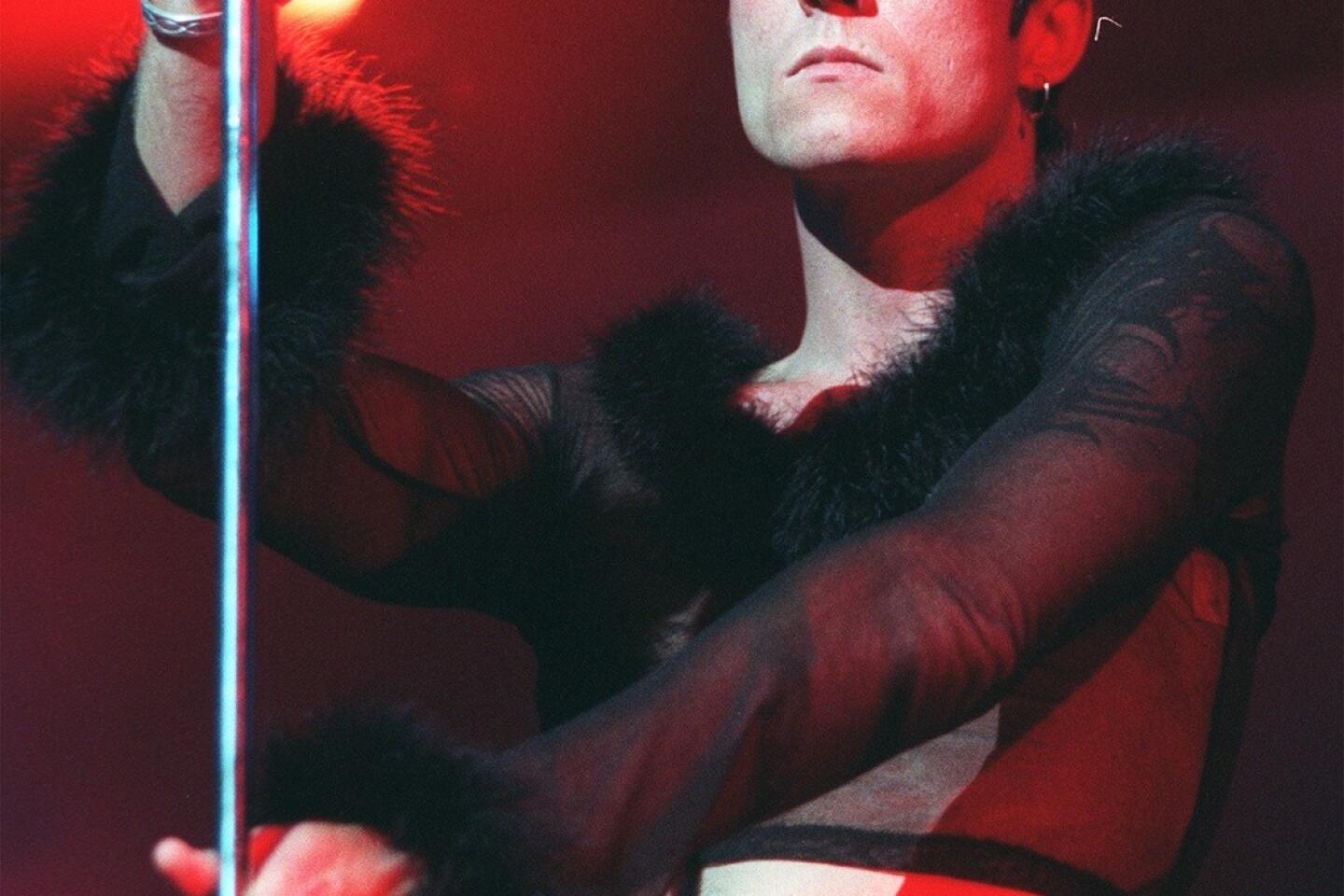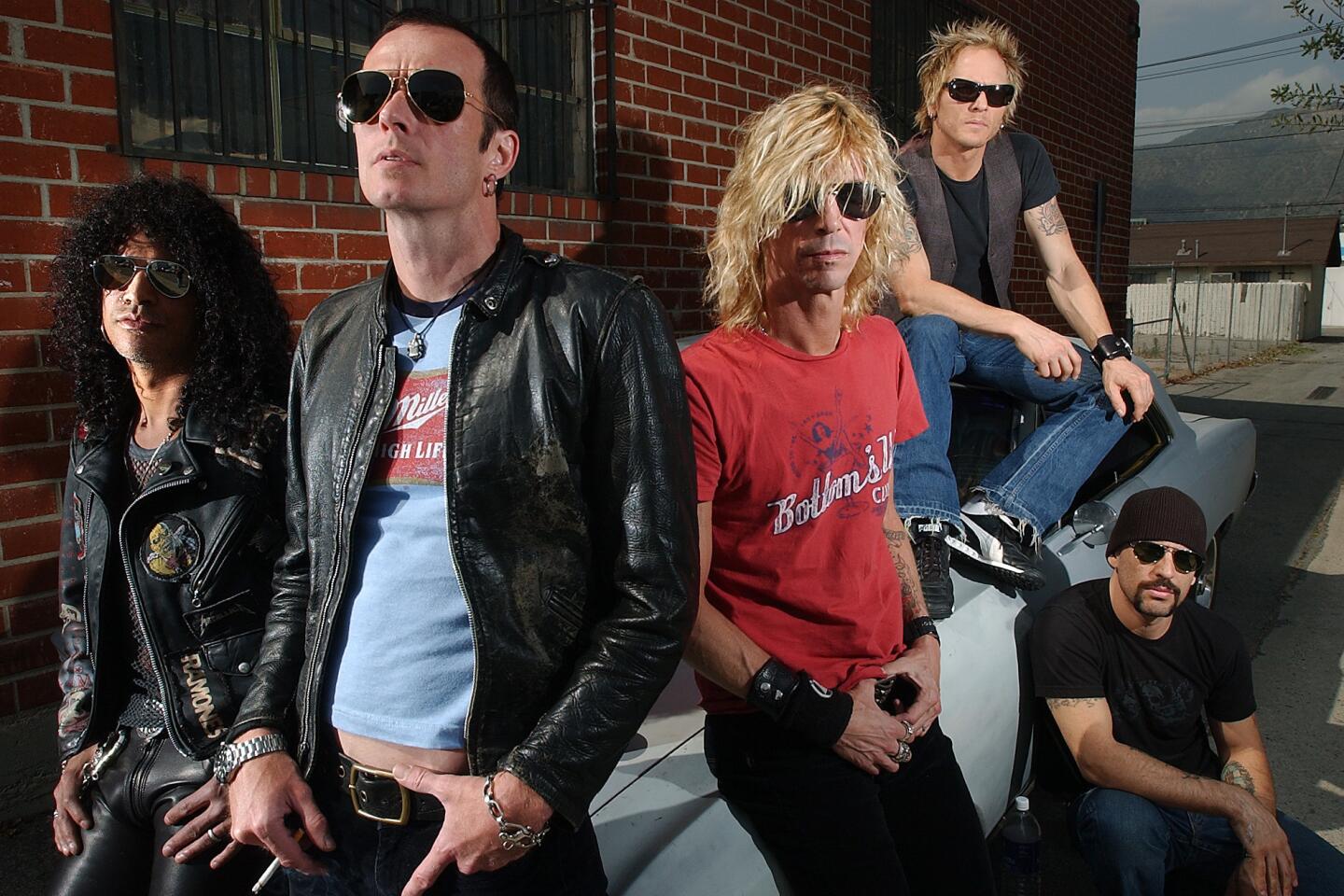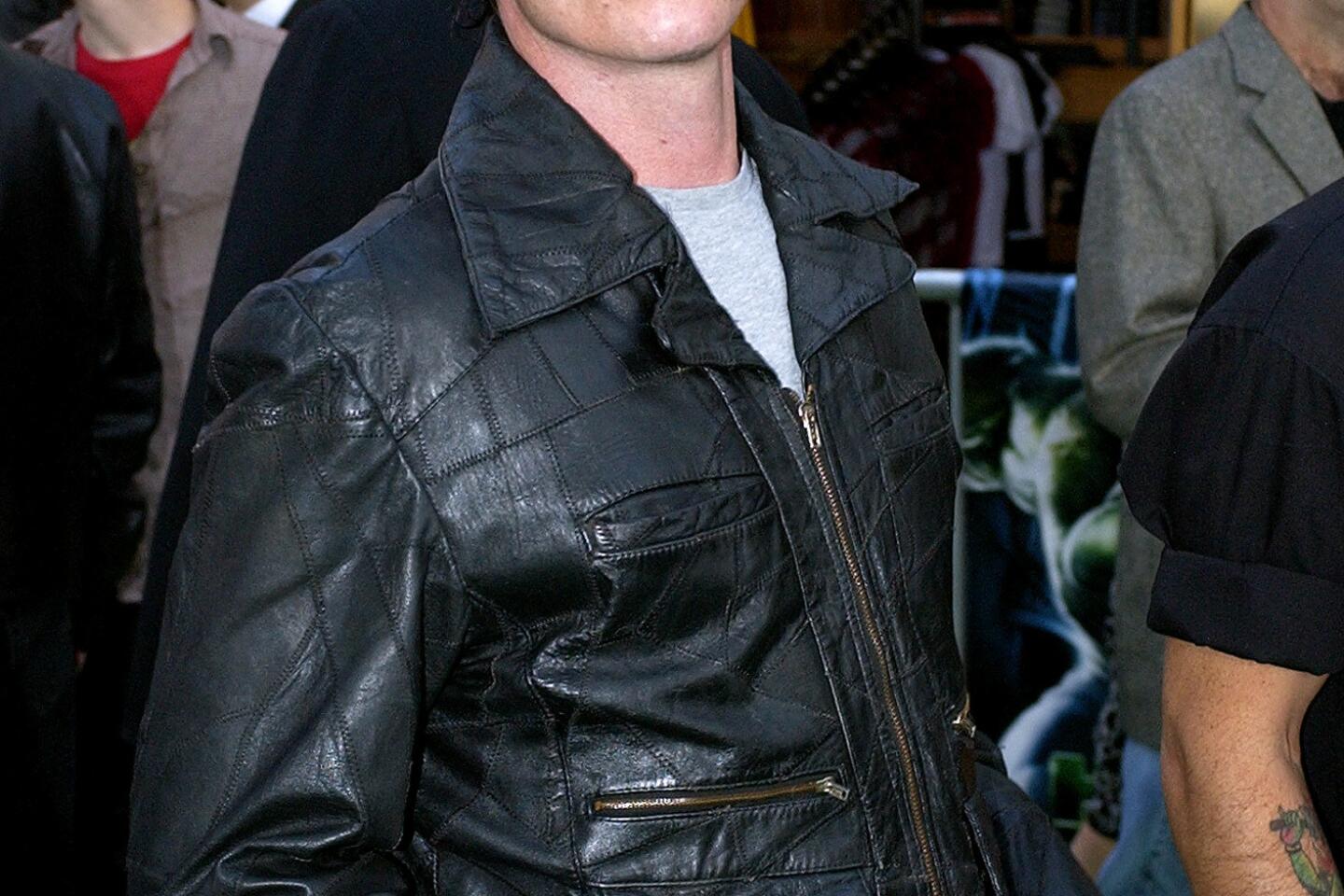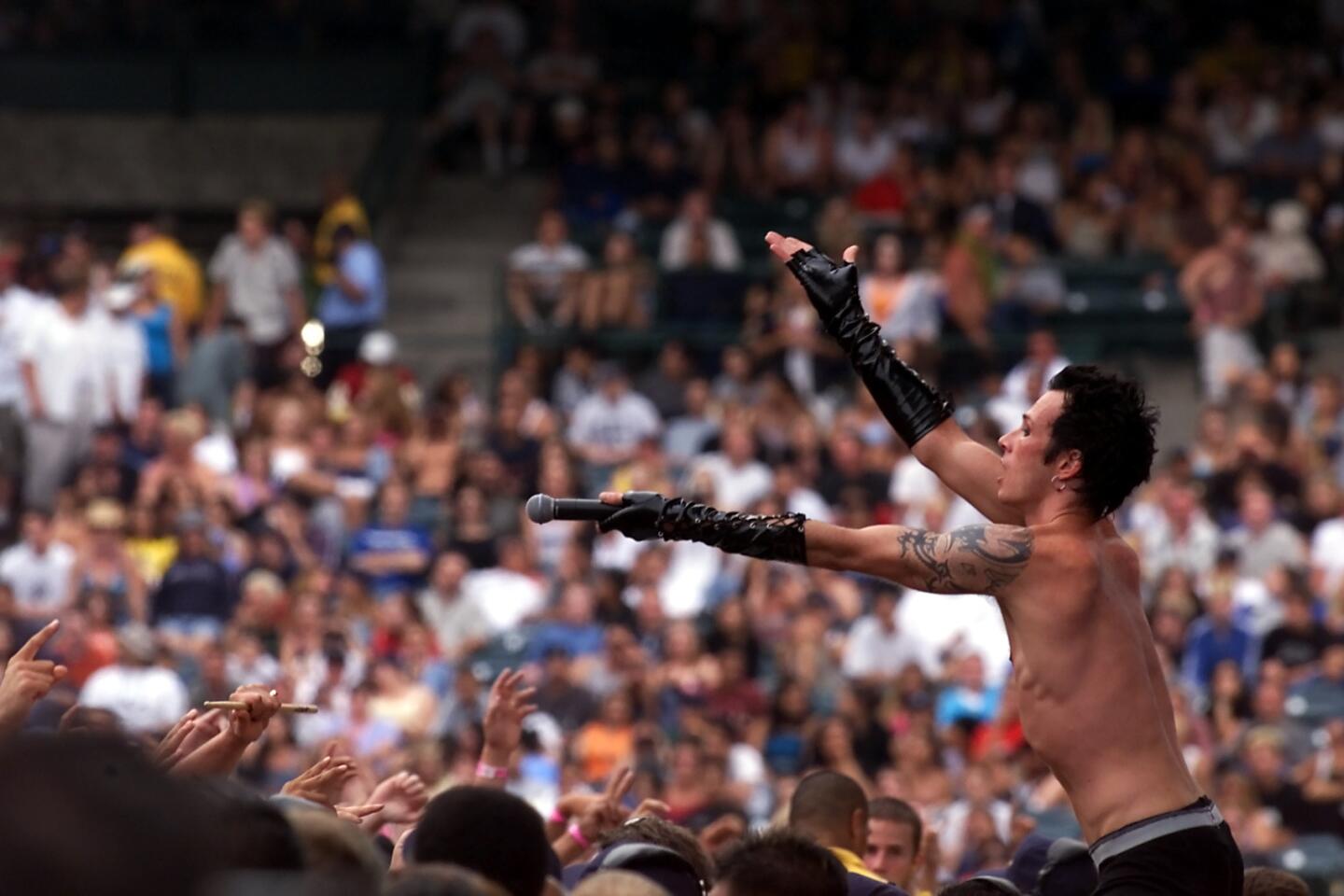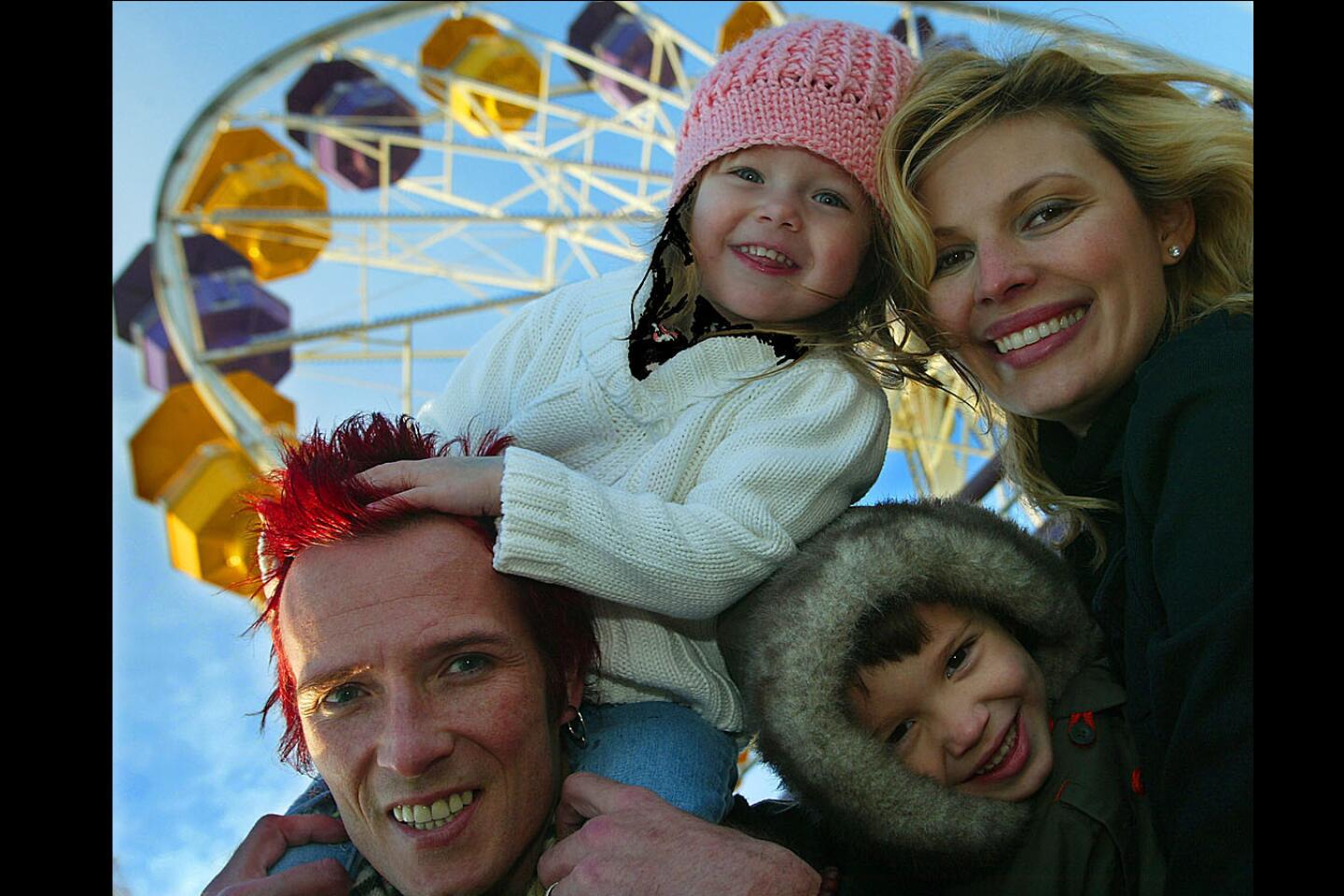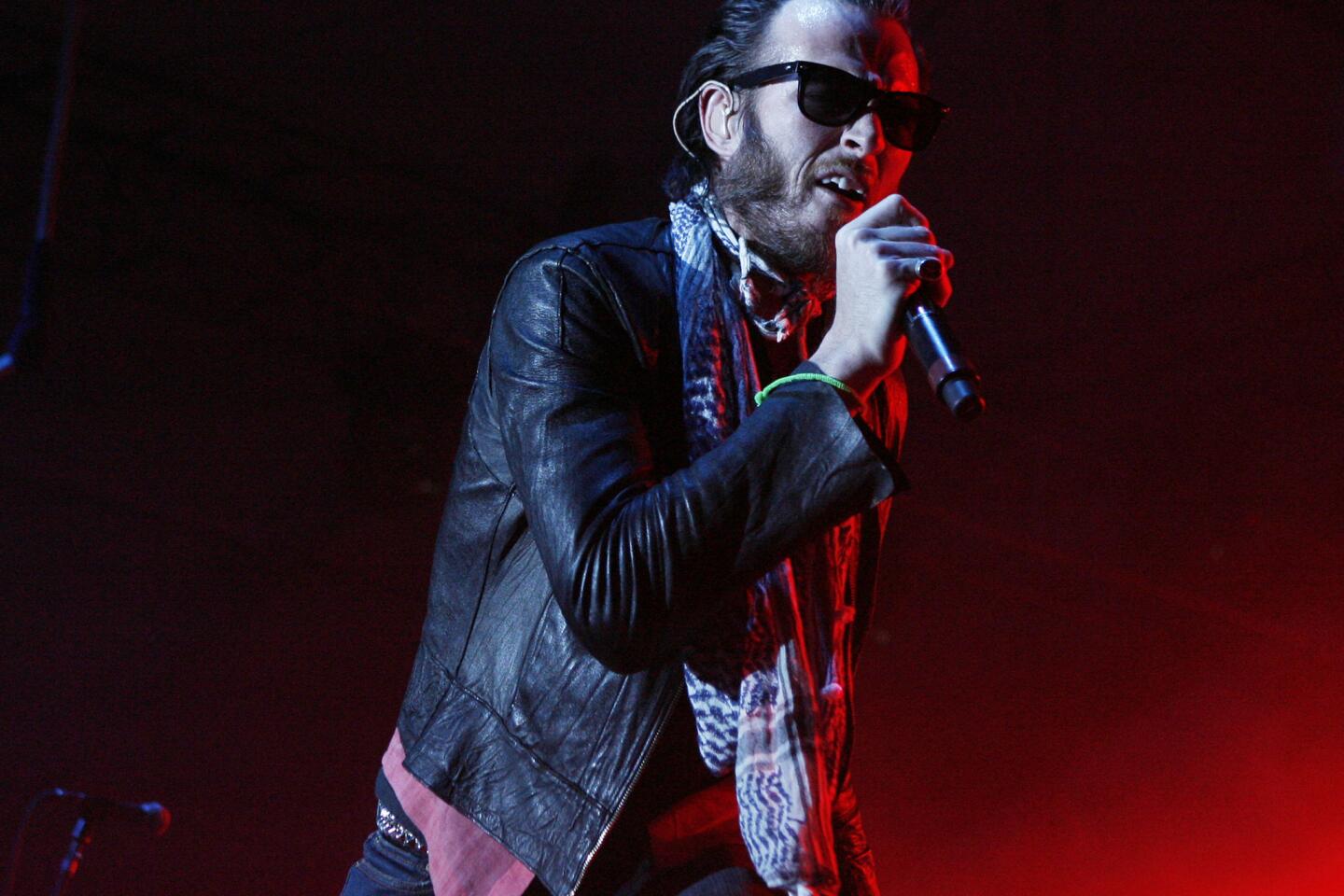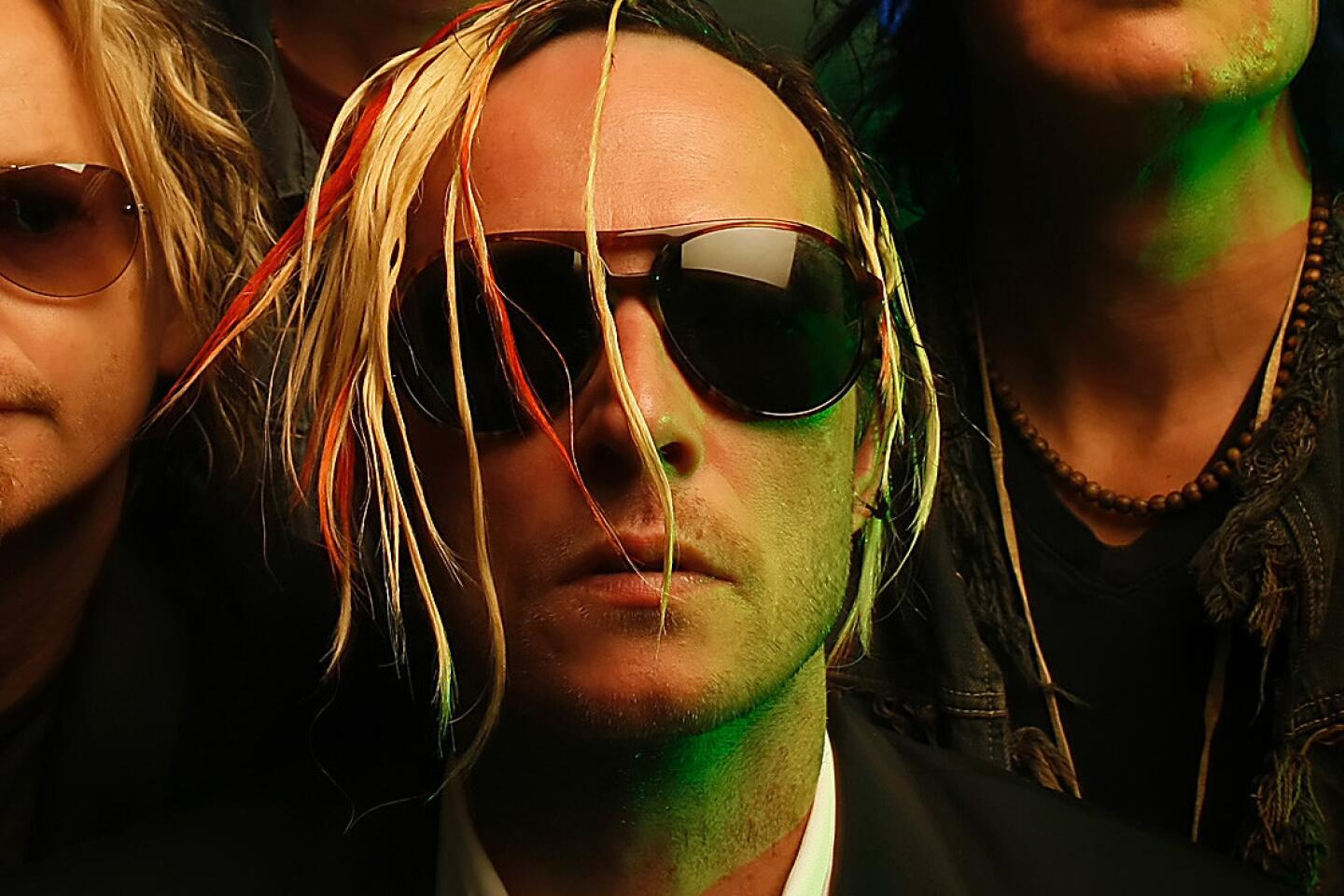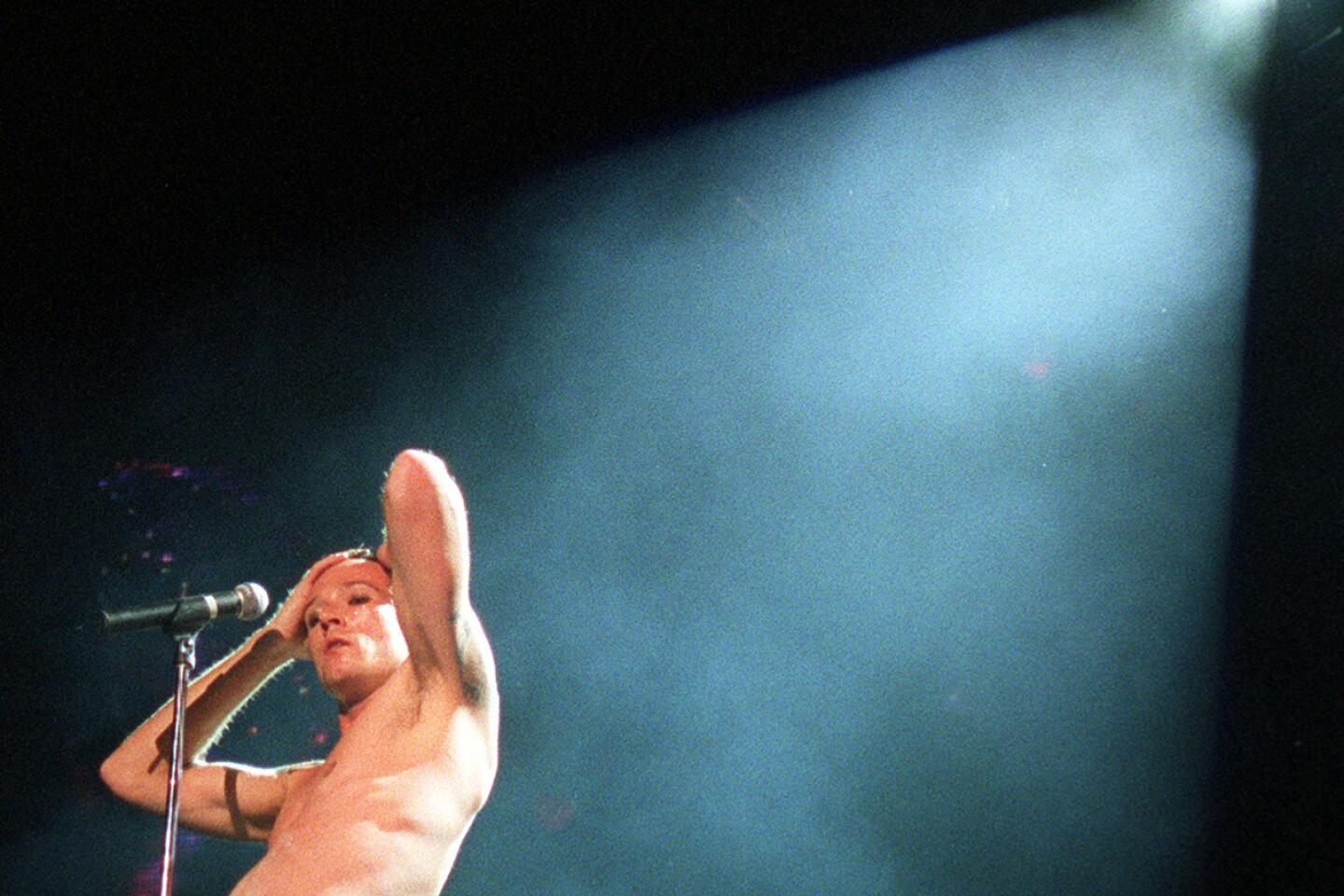From the archives:: Overwhelmed by both commercial success and criticism, Stone Temple Pilots nearly self-destructed
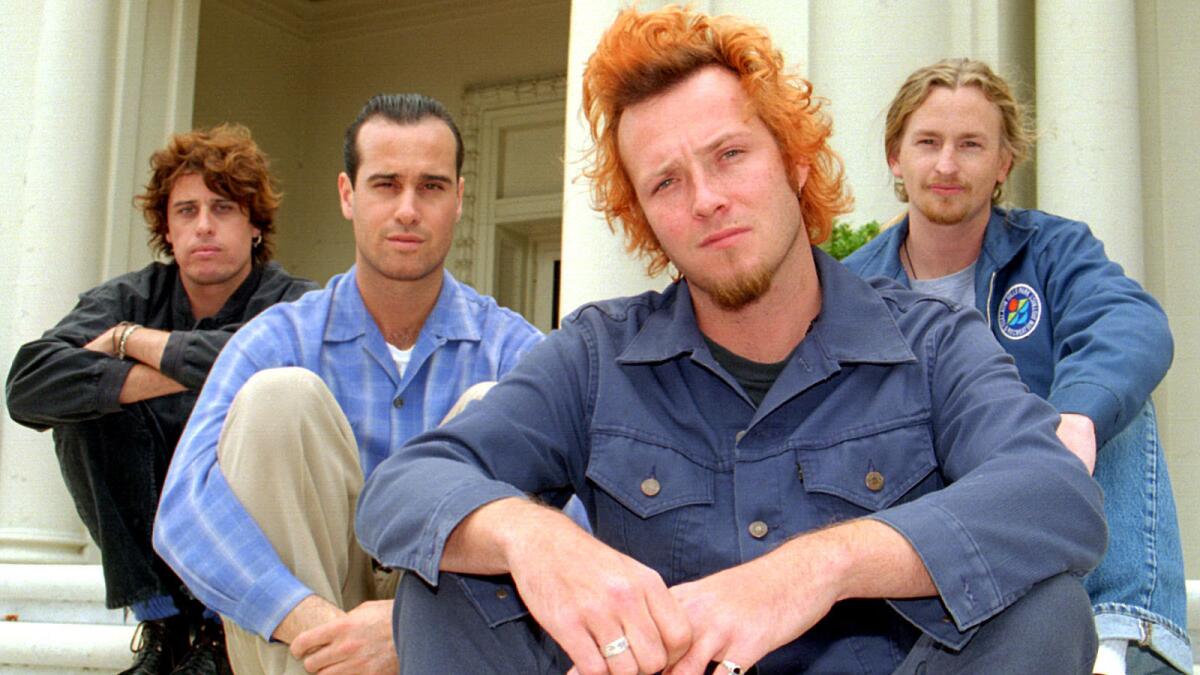
Stone Temple Pilots
Scott Weiland was found dead on Dec. 3, 2015, at the age of 48 . What follows is a 1994 story and interview with the musician and the Stone Temple Pilots.
The members of Stone Temple Pilots have spent much of the past year gritting their teeth.
While nearly 4 million fans were bonding with the bittersweet melodies of the quartetâs debut album, the band itself was coming apart at the seams.
In fact, the success of the groupâs album, âCore,â caused such deep problems within the Southern California group that its members went an entire six months without speaking to one another.
The main problem: credibility.
SIGN UP for the free Essential Arts & Culture newsletter >>
The band, whose second album, âPurple,â is due out Tuesday (see review, Page 60) , has been accused by critics and other musicians of riding on the coattails of Seattleâs rock scene--from STPâs sound to its very demeanor.
Video connoisseurs Beavis and Butt-head summarized what many were thinking as the two watched the bandâs âPlushâ video on MTV. One of the pubescent dudes accused the band of ripping off Pearl Jam. No, the other whined, it was Pearl Jam that ripped off these guys.
Scott Weiland, STPâs lead singer who just goes by his last name, is hardly unaffected by the accusations. The 26-year-oldâs angelic face often knots with worry and his strawberry-blond hair looks as though itâs been raked over by nervous hands as he considers the matter.
âPeople make it sound like we suddenly appeared from nowhere, made a record and sold 4 million copies,â he says during an interview in West Hollywoodâs Sunset Marquis Hotel, where the band has gathered from home bases that stretch from San Diego to Topanga Canyon. A rumpled cotton shirt hangs off his small frame, while his stiff, new boots creak as he fidgets uncomfortably on the couch.
âPart of the reason we seem new is we tried to distance ourself from the L.A. scene. The truth is we played small clubs and watched a lot of other bands get blown up and hyped out before ever doing anything.â
Weilandâs songwriting partner, Robert DeLeo, is also troubled by the comparisons.
âHow could you not be personally affected or hurt by someone dissing whatâs so personal to you?â says the 28-year-old bassist, whose clean-cut, suburban look is squarely conservative next to Weilandâs more disheveled appearance, and seems severely out of place in the hard rock world STPâs been pegged into.
âIt hurts at times. . . . The last thing I wanted to do with this band was make everybody believe we invented something. Hopefully, weâre just contributing to something. But the industry is always looking for the next big thing, like the whole Seattle scene. It got to a silly point that any band that comes out that is trying to express themselves is lumped into a category.â
That pain, and the mounting pressures that come with success, left the band members at odds with each other about career goals and musical directions, and collectively unable to plan a next move. But after half a year apart, the group, which plays July 16 at Irvine Meadows Amphitheatre and July 19 at the Greek Theatre, went to Atlanta to record, and in the studio, away from the worldâs eyes, began to gel again.
âRobert and I have been writing together for eight years,â Weiland says. âWeâre complete polar opposites. We always write our best music when antagonizing each other or thereâs some uncomfortable element there. But before, it was more superficial. Now the circumstances run much deeper.â
*
Just mention Stone Temple Pilots in the rock world and youâre likely to start a debate--or at least trigger a smarmy comment or two.
Gibby Haynes of the Butthole Surfers once referred to them as Stone Pimple Toilets. Rocket From the Crypt, a band at the forefront of San Diegoâs much lauded independent music scene, claims STP tried to align itself with the city for credibility.
Rocketâs singer John Reis once charged that STP âchanges with whatever (hot) sound is next.â Spin magazine last year sharply noted that STP has âridden the backwash of the grunge wave far beyond anyoneâs wildest dreams, even their own.â
Thereâs no doubt that Weilandâs quavering, low voice is similar to Eddie Vedderâs and STPâs slow creeping guitar style is like that of Alice in Chains. But the similarities are more likely due to the fact that all three bands pilfer riffs from â70s bands such as Black Sabbath and Led Zeppelin.
Stone Temple Pilots--which also includes Eric Kretz on drums and DeLeoâs older brother, Dean, on guitar--comes up with the most accessible sound, stripping the band of even more precious credibility in alternative rockdom, where success is often equated with compromise.
The groupâs hypnotic melodies emit more hope than the disturbed and introverted sound of Alice in Chains, and while Vedder sweats out lines like âOnce upon a time, I could control myself,â Weilandâs lyrics are more cryptic.
Weilandâs also not so self-obsessed as some of the artists with whom heâs been compared. His lyrics align STP with outside issues, including feminism. Weilandâs unorthodox angle was so unexpected that his anti-rape song âSex Type Thingâ was misconstrued as glorifying a rapistâs mentality: âIâm a man, Iâll give you something you wonât forget. You shouldnât have worn that dress.â
But bands that follow commercially on the heels of booming breakthroughs in rock often meet with skepticism--and wind up having to prove their worthiness. It happened to Pearl Jam in the wake of Nirvanaâs success, though Pearl Jamâs riff-rock had little to do with Nirvanaâs unparalleled blend of gritty pop.
Strip away the nasty comments and canât-win comparisons surrounding STP, and the band stands as a credible--not revolutionary--force. Itâs far above the dozens of complete grunge knock-offs, but has gained enough notoriety to become a reference point for any Seattle wanna-be jokes that are busting to be told.
âI honestly believe, from some of the (expletive) that Iâve read in the last year, that they couldnât have listened to the whole album. Maybe they just heard a single or watched one video and based the whole existence of the band off one song,â says Robert DeLeo.
âI was shell-shocked when the first album took off,â recalls Weiland. âIt was pompous to assume we were gonna be big stars, but I must have known something would happen because I didnât have a plan B.â
*
Weiland was born in San Jose, but his parents divorced early on, and his mother moved with him to the sleepy, one-school town of Chagrin Falls, Ohio, when he was 5.
His family moved back to Southern California when Weiland was 15, setting up house in Huntington Beach, where he attended high school. He went to Orange Coast College in Costa Mesa, but was more interested in starting up a power punk band with a guitarist friend, which began playing around Orange County.
Weiland worked construction jobs and catering gigs to pay the rent, and at one point worked as a graphic artist at a local paper after lying about his qualifications. âI told them I was a student at Otis/Parsons (art school),â he recalls. âIt worked.â
Robert DeLeo, the youngest in a family of 10 children from his motherâs several marriages, grew up in New Jersey listening to his parentsâ collection of the Mamas and the Papas and Carpenters albums. In 1982 he started playing bass in a cover band that his brother Dean had started. After high school, he moved to California in 1984, living in his car or crashing at friendsâ houses between San Diego and Los Angeles.
Robert DeLeo and Weiland met at a Black Flag show in Orange County in the mid-â80s and started playing together. But it wasnât until their original guitarist quit to pursue a budding cookie delivery business that they brought Dean and Kretz in to form a band called Mighty Joe Young.
After playing regularly in Orange County and occasionally in San Diego and Los Angeles, the band signed to Atlantic Records in 1992. A Chicago bluesman already using the name Mighty Joe Young was in part behind the moniker change, but Weiland had another concern.
âI wanted to change the name anyway because of any association we might have with that band Ugly Kid Joe. I was deathly afraid that people would get confused,â he says.
âCoreâ was released in September, 1992--and had climbed to No. 3 on the national charts by the following May.
Weiland remembers the rush that followed the albumâs popularity.
âWe didnât have a lot of time to sit back and think about it because we were on the road constantly,â says the singer. âIt hit when we broke down on tour, and thatâs when we started breaking down personally. We canceled the tour, flipped out, and had to come home. We stayed apart until we made the record. Itâs amazing we even made it.â
*
Now Weilandâs bracing himself for the repercussions bound to follow the Pilotsâ new album. The collection is moodier and at points darker than âCore,â which may reflect the mind-set of its makers at the time.
âThere was a lot of dissension between myself and the band while recording this album,â says Weiland. âBut sometimes that kind of negative energy breeds positive energy in the end. It feels like that conflict almost drove the sound. And now that weâre actually speaking again, I hear an element of hope in it.â
Success hasnât just been a confining experience for the band. Weiland says. Ironically, itâs also set them free.
âItâs added to the sense of freedom we felt as individuals to be honest with our music, without having to feel we needed to fit into a certain category or match our last album. I donât think any of us felt that second-album kind of pressure. Instead, there were a lot of other things that came along. Like the myth of rock stardom you get set up with.â
What is the Rock Myth?
âItâs the overall feel that success brings instant self-worth, gratification and happiness,â explains Weiland, relaxing as the interview goes on. âBut thereâs so many outside things that corrupt that. Take, for example, a show. Itâs different when youâre playing for free beer.
âThereâs passion, excitement--the reasons you initially got into it. But it hits a certain point when youâre not playing a show, youâre putting on a production. If you can have a sense of humor about it, it helps--but thatâs sometimes hard.â
Robert DeLeo agrees.
âYou can go on believing youâre a rock star or get to a point when you realize rock is really silly,â he says. âI wonât allow anything in this business to take over what or who I am. I was me before any of this happened and Iâll be me after all this blows over. It canât last forever. Iâll be what I was before this started: myself.â
More to Read
The biggest entertainment stories
Get our big stories about Hollywood, film, television, music, arts, culture and more right in your inbox as soon as they publish.
You may occasionally receive promotional content from the Los Angeles Times.
